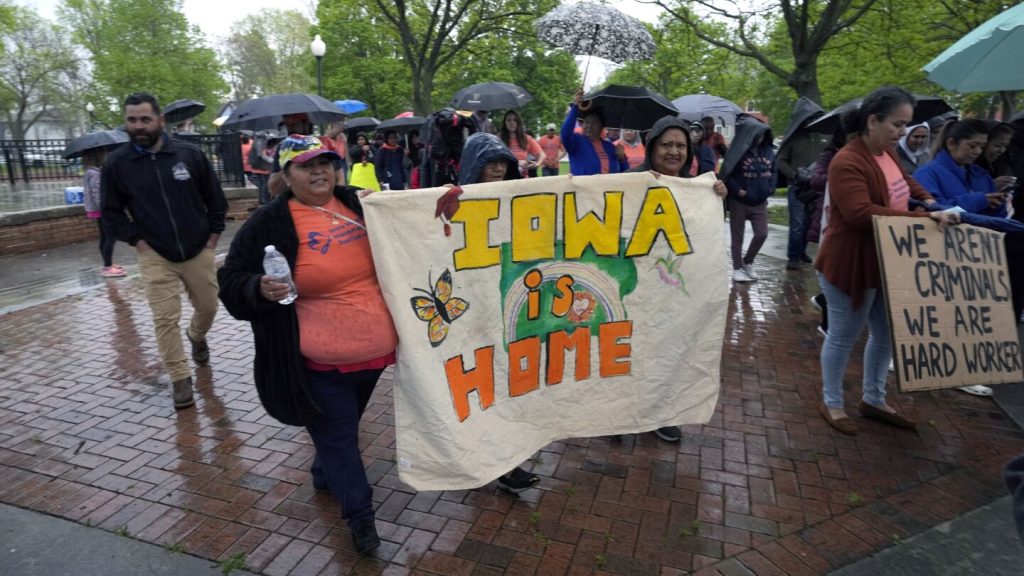In recent news, a federal judge in Iowa issued a preliminary injunction blocking a state law that would have allowed prosecutors to file criminal charges against individuals based on their immigration status. The law, approved by Republican lawmakers and GOP Gov. Kim Reynolds, aimed to give state authorities more power in enforcing immigration regulations. The U.S. Department of Justice and civil rights groups filed a lawsuit against the law, arguing that it would cause confusion and chaos. The judge ruled in favor of the plaintiffs, stating that federal immigration law preempted the new Iowa law.
Other states, such as Texas and Oklahoma, have also attempted to pass similar immigration laws that would give state authorities a role in enforcing regulations. Texas passed a law allowing migrants in custody on illegal entry charges to either leave the country by order of a judge or face prosecution. However, the law was quickly put on hold by a federal appeals court. In Georgia, a new law requires jail officials to check with U.S. Immigration and Customs Enforcement to determine the immigration status of prisoners, with consequences for failure to cooperate. Tennessee and New Hampshire have also passed legislation aimed at addressing immigration issues.
On the Democratic side, states have largely left immigration enforcement to the Biden administration, with some seeking to expand immigrant rights. In Maryland, lawmakers approved a bill seeking a federal waiver to allow people to buy health insurance through the state’s exchange regardless of immigration status. Arizona’s Democratic Gov. Katie Hobbs vetoed a bill similar to the Texas law, prompting legislators to approve a measure that will go on the November ballot, making it a state crime for noncitizens to enter through locations other than official points of entry.
The issue of immigration has become a central focus in the presidential campaign, with polling showing that more than half of U.S. adults believe Biden’s policies have negatively impacted the country. Republicans, including former President Donald Trump, have used concerns about illegal immigration to criticize Biden and push for stricter regulations. Democrats, including Biden, have pointed out that they have faced resistance from Republicans in implementing immigration restrictions. The ongoing debate highlights the complex and contentious nature of immigration policy in the United States.
The federal government traditionally has had sole authority over immigration policy, but the involvement of states in enforcing regulations has become a growing trend, fueled by frustrations with existing policies and political motivations. The clash between federal and state laws on immigration reflects broader divisions within the country on how to address issues related to immigration and border security. As the debate continues, it remains to be seen how the issue will impact the upcoming election and shape the future of immigration policy in the United States.


